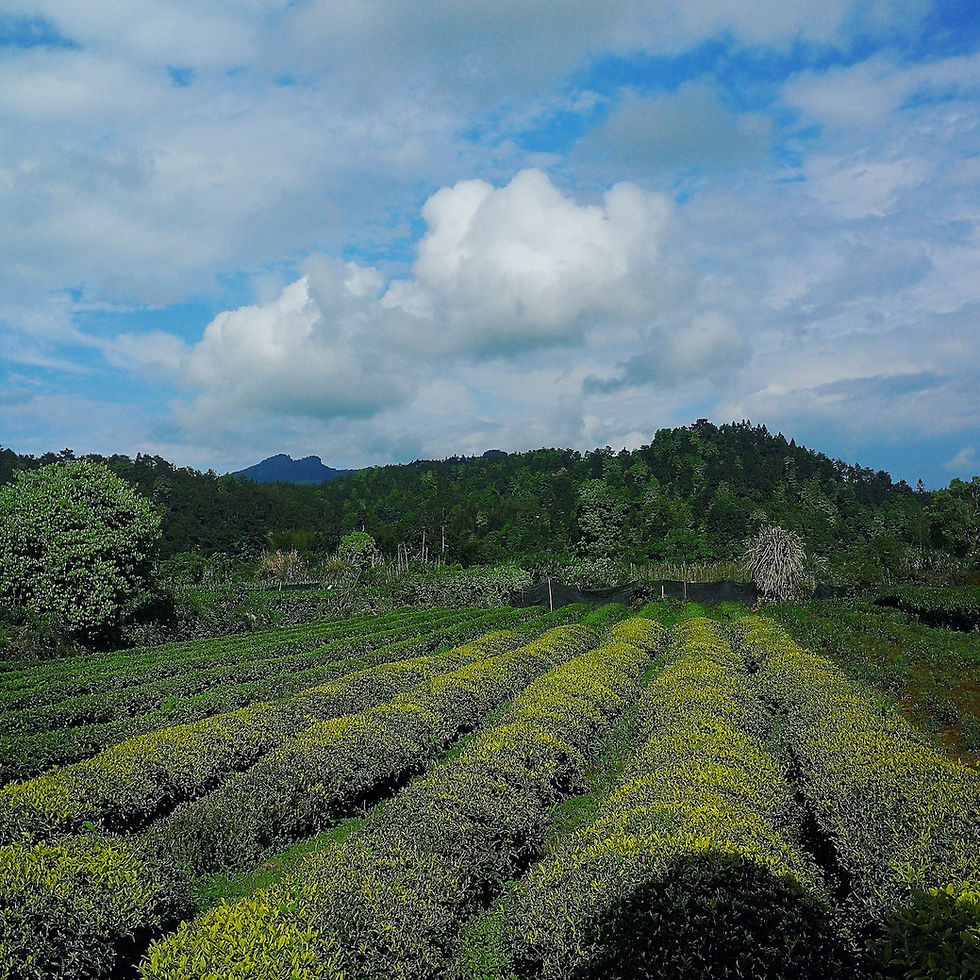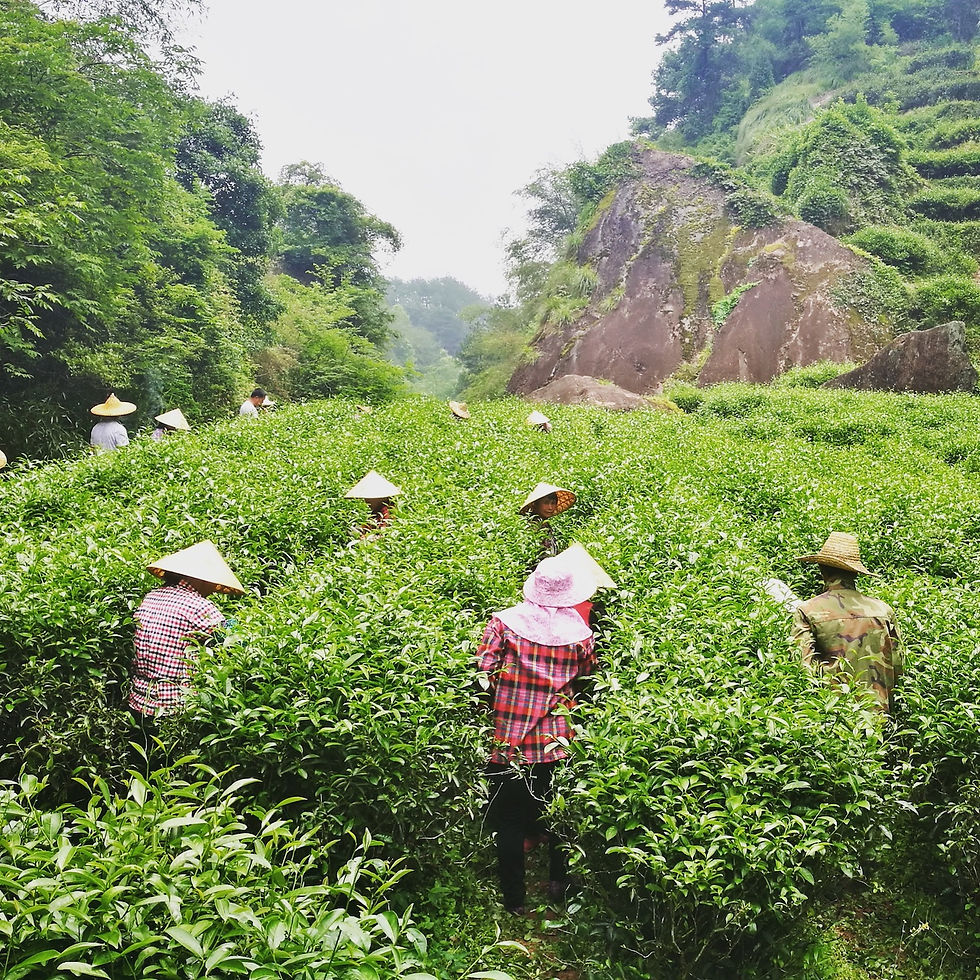Blog 115: Why Do We Fear Spring Frostbite?
- Valley Brook Tea

- Apr 25, 2019
- 3 min read
Tea production is an agricultural activity. No matter how advanced modern technologies get, tea production will always encounter natural disasters that are unique to agriculture. For example, spring frostbite can greatly affect our spring tea production. Today, let’s talk about why we fear the spring frostbite.

A spring frostbite is devastating to our tea fields. Since we only harvest in spring, a spring frostbite can easily destroy all of our tea growth.
Many tea lovers think the danger of the spring frostbite is that it kills tea plants. However, spring frostbite rarely hurt tea plants. As a matter of fact, in winter, our tea mountain fields can get close to a subzero temperature (in Celsius, equivalent of low 30s Fahrenheit). If tea plants can’t stand the coldness, they won’t survive the winter.
If you come to our tea mountain fields in deep winter, you might even discover that some of our tea plants are actually covered in snow.

Spring frostbite do harm by killing newly sprouted tea leaves.
Newly sprouted tea leaves are like human babies. Many kids get sick between seasons because the sudden drop in temperature. When a spring frostbite hits, baby leaves behave in a similar way. Under severe conditions, fields of baby leaves can die overnight.
If a tea field of baby leaves is dead, we have no choice but to claim this particular field a total loss for the spring harvest.
You might wonder that if tea plants are unharmed, can’t we just wait for new leaves to regrow? In theory, yes. Tea leaves will regrow ultimately, but they’d miss the spring harvest in late April/early May.
When new leaves finally regrow, it’ll be around a harvest time known as “Er Chun”, or literally “second spring”. The “second spring” harvest is considered as the “summer harvest”. Fresh leaves from this harvest generally have inferior quality because of the low nutrient content accumulation. This is why tea makers including us only have one harvest per year (the spring harvest).

Unfortunately, there is currently no reliable technology to predict and prevent spring frostbite from damaging our tea fields.
In mountains, every tea mountain field has its own small climate. A spring harvest might hit one particular tea mountain field but not other nearby fields. The current weather report cannot accurately predict for one specific tea mountain field.
But even if we can detect a spring frostbite ahead of time, there’re little we can do. We can’t possibly move all tea plants “indoors” or create a manmade shield large enough to cover the entire tea field.

Does this mean all tea mountain fields are vulnerable to spring frostbite?
Not really. In general, tea mountain fields in a valley are better shielded than those on a plain. Just last year, one of our tea fields on the plain was hit by a spring frostbite, and it was a total loss; however, just a few hundred yards away, our fields in the valley were untouched.
Mountains serve as natural defense against frostbite, and they create a new small climate that’s usually unaffected by the outside world. This is why historically most premium tea mountain fields are in the valley.
Luckily, none of our tea mountain fields were hit by spring frostbite this year. We expect a great harvest with an healthy increase in output.
Our spring harvest is happening right now. There will be great news coming soon. Follow us on social media and get our latest updates!
We hope you enjoyed today’s blog. As always, if you have questions or suggestions, please leave a comment, tweet us @valleybrooktea or email the author directly at zhang@valleybrooktea.com. Please also follow us on Instagram @valleybrooktea and join our mail list to get our daily tea updates and our latest promotions!
This is a Valley Brook Tea original blog. All rights reserved.




Kaiser OTC benefits provide members with discounts on over-the-counter medications, vitamins, and health essentials, promoting better health management and cost-effective wellness solutions.
Obituaries near me help you find recent death notices, providing information about funeral services, memorials, and tributes for loved ones in your area.
is traveluro legit? Many users have had mixed experiences with the platform, so it's important to read reviews and verify deals before booking.